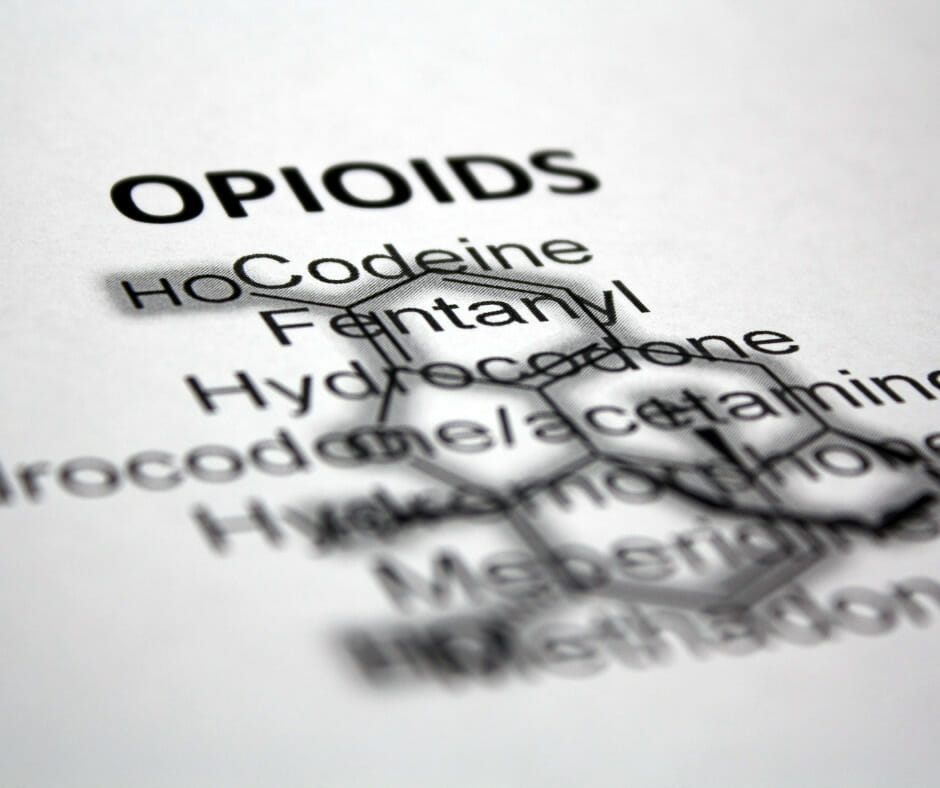Opioid addiction is a serious problem that has plagued the United States for decades. The opioid epidemic has spread through all socio-economic classes and age groups, affecting millions of people across the nation. Fortunately, there are now effective treatments available to help those struggling with opioid addiction.
In this blog post, we will look at what opioids are, why opioids can be so addictive, and provide an overview of the rehab services available for treating opioid addiction.

What are Opioids
An opioid is a type of drug derived from opium—a naturally occurring substance from the poppy plant—that affects the brain’s reward system and produces a feeling of euphoria. Commonly known opioids include morphine, codeine, oxycodone (OxyContin), hydrocodone (Vicodin), fentanyl, heroin, and methadone.
All these drugs have legitimate medical uses for severe cases of chronic pain, including postoperative pain and pain resulting from cancer but also carry a high risk of abuse and drug addiction due to their highly addictive nature.
The misuse of opioids has become a prominent national problem in recent years. According to CDC, in 2020 nearly 75% of deaths caused by drug overdose involved opioid misuse.
Treatment Options for Opioids Addiction
Treatment for opioid addiction consists primarily of two components: detoxification (detox) and rehabilitation (rehab). Detox is necessary because it helps flush out residual opioids from your body while managing withdrawal symptoms such as nausea and headaches associated with quitting.
After detox is complete, rehab services provide counseling sessions that focus on understanding the triggers behind your substance abuse and teaching healthy coping mechanisms that enable you to stay sober in the future.
Here are the different types of rehab services available for opioids addiction treatment:
Inpatient Rehab
Inpatient rehab centers offer a safe and secure environment for those who are addicted to opioids to get the help they need. During the treatment, the patient is provided with 24-hour medical care and monitoring from a team of specialists, including psychiatrists and clinical psychologists.
In addition to providing access to medication-assisted treatment (MAT) programs, many inpatient facilities also offer group therapy sessions, individual counseling, and other evidence-based therapies such as cognitive behavioral therapy (CBT).
This type of treatment option is ideal for individuals who have been abusing opioids for a very long time and have developed a very strong dependence on the drug. The sober environment in an inpatient rehab offers the structure, motivation, and safety one needs to undergo a safe journey to recovery.
Partial Hospitalization Rehab
By participating in a Partial Hospitalization Program (PHP), individuals receive intensive treatment without having to stay in a live-in facility full-time. This type of care includes attending medical and psychotherapy sessions multiple times per week, often at least five days a week.
During this time, dedicated professionals aid participants in creating recovery plans that optimize their chances of staying sober long-term and pursuing other life goals. It is important to note that this kind of program is not a one-size-fits-all solution as each participant’s individualized treatment plan must be developed specifically for them.
At Lantana Recovery, we offer customized Partial Hospitalization Rehab services tailored to the needs of each participant.
Intensive Outpatient Rehab
People struggling with opioid addiction often need a way to treat themselves outside their normal living environment, which intensive outpatient rehab can provide. An intensive outpatient program is often utilized to treat moderate to mild addictions and typically lasts for three to four months.
It is designed to treat the physical, psychological, and social components of addiction to provide patients with the tools they need to succeed in making positive changes. It is a comprehensive program that meets the needs of each patient, providing them with the tools and resources to address their unique issues.
The individualized plans combine evidence-based cognitive-behavioral therapies, medical care, and medication-assisted treatment to give patients the support they need when returning to a healthier lifestyle.
Lantana Recovery offers outpatient rehab services for opioid addictions.
Outpatient Rehab
Outpatient rehab centers are designed for those who don’t require 24/7 care but still need help managing their opioid use disorder. Outpatient programs typically involve attending regular visits with a therapist or counselor and participating in group or individual counseling sessions. They may also include access to MAT programs such as buprenorphine or naltrexone.
Outpatient rehab is ideal for students, parents, or anyone who cannot commit to inpatient rehab due to the lack of money or time. However, the decision of whether it is suitable for you depends on your healthcare provider based on the intensity of your addiction.

Opioids: Dependence vs. Addiction
Opioid dependence occurs when a person has become so accustomed to the effects of the drug that they require it in order to feel normal and function in everyday life. When dependence is present, the body will experience withdrawal symptoms when stopping use and may require medical help to come off the drug safely.
Opioid addiction, on the other hand, goes beyond dependence and is classified as compulsive drug-seeking behaviors despite negative consequences. It is characterized by an intense craving for opioids and difficulty controlling intake.
Even when an individual wants to quit using opioids, they may find themselves unable to do so without professional support and treatment. Addiction can lead to serious health problems including overdose or death; it also affects relationships, work productivity, and finances.
The differences between opioid dependence and addiction are primarily related to control over the usage of opioids: those who are dependent may still have some level of control over their use whereas someone who is addicted may not be able to stop taking opioids altogether without medical intervention.
Opioids Addiction Symptoms
Opioids such as prescription painkillers and heroin, can have devastating physical and psychological effects on the user. It’s important to be aware of these signs so you can recognize them if someone you know is exhibiting them.
Physical Symptoms
The physical symptoms of opioid addiction are usually the first signs that someone has an issue with substance abuse. The physical symptoms of opioid addiction can vary from person to person, but there are some common signs that someone might be struggling with a drug addiction. These include:
- Changes in sleeping patterns such as sleeping for longer periods or acting drowsy during the day
- Nausea and vomiting
- Loss or gain of appetite or weight changes
- Constipation
- Slowed breathing rate
- Unusual pupil size
- Sudden mood swings, agitation, or anxiety
- Increased sensitivity to pain or decreased tolerance for pain
- Muscle aches and pains
- Itching skin
Psychological Symptoms
In addition to the physical effects of opioid addiction, there are psychological effects as well. Psychological symptoms of opioid addiction include anxiety, depression, paranoia, and mood swings as well as cravings for more of the drug.
People who are addicted to opioids may also display erratic behavior such as lying about their use or engaging in risky activities like driving while under the influence or stealing money or drugs from friends or family members in order to get their next fix.
Lastly, people who are addicted to opioids may experience hallucinations or delusions when they are not using the drug which could lead to violent outbursts or self-harm.

Diagnosing Opioids Addiction
Opioid addiction can be difficult to identify, as the individual may not show obvious signs. Some of the warning signs that could signal a person is developing an opioid addiction include changes in behavior, such as appearing more withdrawn or secretive than before, increased tolerance for painkillers and difficulty functioning without them, and financial difficulties related to opioid use.
People suffering from opioid addiction may have physical signs such as extreme drowsiness or even difficulty breathing, or they may start to develop unhealthy sleeping habits. Mental clues of opioid addiction include disorientation or confusion and a lack of focus and motivation.
Taking notice of shifts in mood or health conditions associated with opioid use can help catch addiction early on. Friends or family members should also look out for excessive sleepiness and watch out for unusual purchases or requests for opioid-related prescription medications.
If you suspect that someone is addicted to opioids, it is crucial to get in touch with addiction treatment centers or addiction specialists to discuss their Opioids use in more detail. Seeking professional opinions can help you or your loved one to understand addiction more.
Opioids Addiction Treatment Options in South Carolina
Addiction to opioids, a type of synthetic pain reliever derived from opium, is a growing problem in South Carolina. There are plenty of treatment options and rehab clinics in the state for anyone struggling with opioid addiction.
Opioids Rehab in Charleston
In Charleston, there are several rehabilitation centers that offer both residential programs and outpatient services for those struggling with opioid use disorder. These programs provide evidence-based therapies such as cognitive behavioral therapy and contingency management, as well as medication-assisted treatments to help the patients cope with the withdrawal effects.
At Lantana Recovery Rehab in Charleston, we follow a holistic approach to treating opioid addiction that includes addressing all underlying mental, physical, and emotional issues that might be contributing to drug abuse.
Opiates Treatment for Greenville Residents
In Greenville, there are specialized treatment options available for those addicted to opioid drugs such as heroin and codeine. Rehab clinics in Greenville, SC offer counseling services tailored to the individual needs of each patient, helping them develop new coping skills to stay free of their drug of choice. Lantana Recovery Rehab in Charleston welcomes people seeking opiates treatment services in Greenville.
In addition to traditional psychotherapy methods such as talk therapy, group sessions are also available to help individuals work through their addiction issues within a supportive community environment.
Opioids Drug Treatment Services For Columbia Residents
Residents of Columbia, SC have access to comprehensive opioid addiction treatment services through local organizations that focus on providing support for individuals facing substance abuse issues.
These rehab facilities in Columbia provide educational resources on the dangers of opioids and how they affect the body, while also offering peer support groups that help individuals learn more about addiction recovery options and how to cope with cravings or relapse triggers.
In addition to counseling services and medication-assisted treatments, these organizations also specialize in aftercare planning so individuals can maintain sobriety long after leaving the program.
Through our Charleston rehab center, Lantana Recovery extends opioids drug treatment services for Columbia residents.
Opioids Addiction: Long-Term Effects
Opioid addiction has long-term effects that can greatly impact the physical and mental health of an individual. Over time, long-term opioid use can also lead to respiratory depression, cardiovascular problems, weakened immune system function, liver damage, and kidney failure. Long-term opioid use can also lead to psychological issues such as anxiety and depression.
In addition to the physical repercussions of chronic opioid use, there are also social issues that may arise due to addiction. People with opioid addiction may find it difficult to maintain relationships or support networks due to their substance abuse problem.
Prolonged substance abuse can lead to isolation from family and friends which can further exacerbate feelings of loneliness and depression.
Furthermore, long-term opioid users may be more likely than non-users to engage in other risky activities such as criminal activity or unprotected sex which further increases their risk of harm.
The longer someone is addicted to opioids the more they put themselves at risk for overdoses or accidental deaths due to acute toxicity caused by drug combinations or interactions with other substances.
In addition, people who have been using opioids for a prolonged period of time are more likely to develop serious infections such as HIV/AIDS due to injection drug use or sharing contaminated needles when injecting drugs into the bloodstream.
Due to these alarming effects, it becomes clear that opioid addiction requires a comprehensive treatment plan in order to reduce the risks associated with long term opioid abuse.
Opioids Treatment FAQs
Can I go to detox for Opioid addiction?
Yes, you can go to a tapered detox for opioid addiction as it allows your body to slowly adjust to the absence of drugs without any serious health complications caused by quitting cold turkey.
Can I attend inpatient rehab for Opioid addiction?
Yes, you can attend inpatient rehab for opioid addictions if you can afford it. The structure and sober environment offered by an inpatient rehab might help accelerate the recovery process.
Can I enroll in outpatient rehab for Opioid addiction?
Yes, you can enroll in outpatient rehab for opioid addiction if your healthcare provider allows it.
Can I Overdose on Opioids?
Yes, you can overdose on Opioids. In fact, it is very common due to their high potential for dependence.
Final Thoughts on Opioids Addiction Treatment
Opioid addiction is a serious issue that requires comprehensive treatment in order for Recovering from an opioid addiction can be a daunting task but with proper treatment and support it is possible to achieve lasting sobriety and lead a fulfilling life free from drugs or alcohol.
If you or anyone you know may be suffering from opioid addiction, do not hesitate to reach out for help today – there are numerous rehab services available that can provide effective treatment tailored specifically for you! It’s never too late to start your journey towards recovery!





